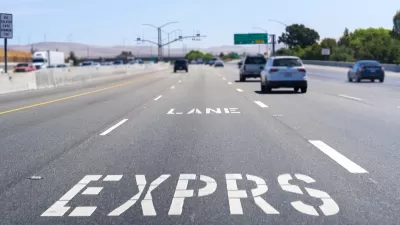It makes sense that the transit agency serving the Silicon Valley would be one of the first to adopt a formal open data policy.
The Santa Clara Valley Transit Authority (VTA) announced the formal adoption of an open data policy earlier this month, according to an post by Cody Kraatz.
The announcement "makes VTA the first government organization in Santa Clara County, one of the first agencies in the Bay Area, and perhaps the first transit operator in the country to adopt a formal Open Data Policy," according to Kraatz.
The Open Data policy is the work of the VTA's Transportation Innovation Center. "The policy creates a standard for proactively releasing VTA’s valuable transportation data through our Open Data Portal at data.vta.org. All data released through the portal will be 'machine readable,' meaning it will use formats that software can understand and manipulate rather than PDFs or text documents only people can read," reports Kraatz.
The article also includes some description of the potential of open data to improve public engagement and as a tool for economic development.
FULL STORY: VTA Adopts Open Data Policy, Sets the Default to Open

Montreal Mall to Become 6,000 Housing Units
Place Versailles will be transformed into a mixed-use complex over the next 25 years.

Planetizen Federal Action Tracker
A weekly monitor of how Trump’s orders and actions are impacting planners and planning in America.

DARTSpace Platform Streamlines Dallas TOD Application Process
The Dallas transit agency hopes a shorter permitting timeline will boost transit-oriented development around rail stations.

Study: 4% of Truckers Lack a Valid Commercial License
Over 56% of inspected trucks had other violations.

Chicago Judge Orders Thousands of Accessible Ped Signals
Only 3% of the city's crossing signals are currently accessible to blind pedestrians.

Philadelphia Swaps Car Lanes for Bikeways in Unanimous Vote
The project will transform one of the handful of streets responsible for 80% of the city’s major crashes.
Urban Design for Planners 1: Software Tools
This six-course series explores essential urban design concepts using open source software and equips planners with the tools they need to participate fully in the urban design process.
Planning for Universal Design
Learn the tools for implementing Universal Design in planning regulations.
City of Mt Shasta
City of Camden Redevelopment Agency
City of Astoria
Transportation Research & Education Center (TREC) at Portland State University
US High Speed Rail Association
City of Camden Redevelopment Agency
Municipality of Princeton (NJ)





























